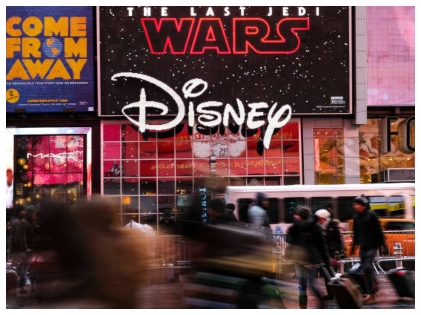 Scarlett Johansson set a box office record for the Covid-19 pandemic when her film, Black Widow went on to earn $218m in its first weekend. However, without a direct release, Ms. Johansson argued that she was deprived of potential earnings. Disney has said that they have complied with her contract and the case does not have any merit, however, she claims she was promised by Marvel Studios, which is owned by Disney, that Black Widow would be a theatrical release.
Scarlett Johansson set a box office record for the Covid-19 pandemic when her film, Black Widow went on to earn $218m in its first weekend. However, without a direct release, Ms. Johansson argued that she was deprived of potential earnings. Disney has said that they have complied with her contract and the case does not have any merit, however, she claims she was promised by Marvel Studios, which is owned by Disney, that Black Widow would be a theatrical release.
Hence, Scarlett Johansson sued Marvel Studios (parent company of Disney) over a breach of her contract for her Marvel Cinematic Universe standalone movie, Black Widow. The film was released simultaneously in theatres also on Disney+ streaming service, and Premier Access in the US.
According to the lawsuit, filed in Los Angeles Superior Court, Johansson said that the hybrid release model went on to breach her Black Widow contract. Apart from taking away her potential earnings the streaming release took away potential theatergoers and cost her the compensatory money linked to the box office revenue.
The Impact of a Pandemic
 During the pandemic, several Hollywood studios opted to bypass cinemas, as they had to release their films online instead. Now that cinemas have been reopening, Disney, along with fellow giant Warner Bros, has thought of maintaining a dual release strategy for most of their big-budget films.
During the pandemic, several Hollywood studios opted to bypass cinemas, as they had to release their films online instead. Now that cinemas have been reopening, Disney, along with fellow giant Warner Bros, has thought of maintaining a dual release strategy for most of their big-budget films.
On the first weekend, Black Widow went on to boast $80 million in ticket sales in North America, $78 million on the international level, and at least $60 million from the Disney+Premier Access rentals. The actor’s salary was based on the box office performance of the film, and she went on to lose $50 million, as per close sources.
Disney’s Stance on the Same
 Disney had a counterpoint saying that the dual-release strategy had been able to improve Johansson’s ability to earn the extra compensation, apart from the $20 million she has been able to receive.
Disney had a counterpoint saying that the dual-release strategy had been able to improve Johansson’s ability to earn the extra compensation, apart from the $20 million she has been able to receive.
Disney went on to say that her legal action is really distressful and sad as the global effects of the Covid-19 pandemic have been nothing short of devastating. Johansson’s agent has been accusing Disney of besmirching her character. Their grievance is that she has been a partner with Disney for nine movies and for that Disney has been able to earn billions.
Winning Back Viewers
Before the pandemic hit the world, Hollywood film fans would either have to watch new releases at the cinema or wait for at least three months to stream films on their devices.
Major studios have recently been trying for the cinema releases and streaming in different ways while trying to get back viewers who are at the risk of getting Covid in confined spaces. Yet streaming films on devices have not been well-received by some of the leading talents, among them being the Tenet and The Dark Knight director, Christopher Nolan. He did not like the idea of releasing the big movies on HBO Max.
Mega Pay Days or Not
While other stars will look at Johansson’s case proceedings, studios who have been on the complementary streaming platforms will be looking at the contractual steps to ward off the further actions.
Whatever may be the outcome of Johansson’s case, it is whether Disney changes its dual-release strategy for the next slew of film releases or not. However, it may take the top talent to think twice before scoring the mega-paydays that theatrical releases have been generating for stars in the past.
The Repercussions of the Lawsuit
Johansson on the other hand promoted the movie without knowing that Disney was going to short-change her at the box office. She has been spending the last several months fulfilling her obligation to promote the picture. Disney has been enjoying the benefits of having Hollywood’s top actresses promote the whole-owned subscription service without the extra costs to Disney. The lawsuit, however, did not name a figure in damages or suggest how much of the box office sales does Disney owe to Johansson.
Conclusion
Johansson’s attorney, John Berlinski, said that Disney decided to stream the film on Disney+ to amp up their subscriber number and also boost the company’s stock price. Berlinski also suggested that Disney has been hiding behind COVID-19 as the pretext to justify such choices. Ignoring the artists who are responsible for the success of the films can be a short-sighted strategy on their part and they are ready to prove them wrong in court.





